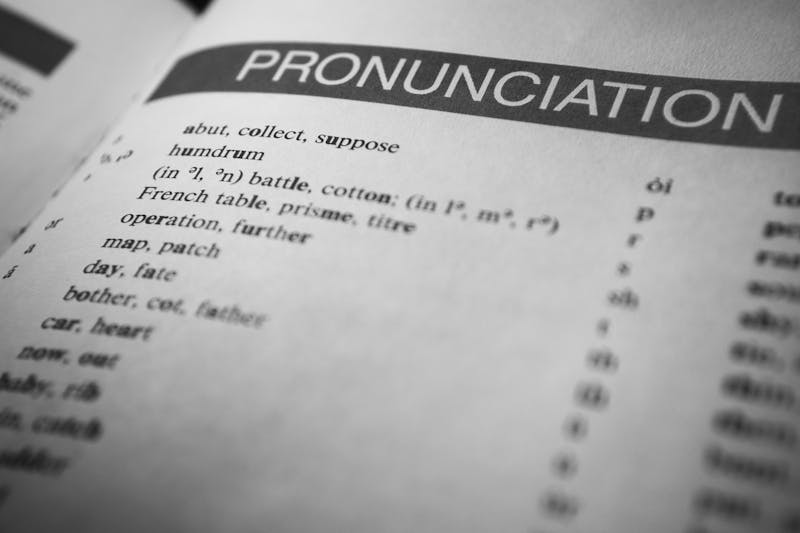How to Master European Portuguese Pronunciation – Part 1
Mastering Portuguese pronunciation is a crucial aspect of language learning. It facilitates clear communication and shows respect for the language and culture. Still, developing a new and intelligible accent in a foreign language is challenging, especially if you are learning it as an adult.
You can learn Portuguese and master its pronunciation, but you need the right tools and you must apply the best strategies. Below, find all that and more. Get exclusive tips to learn Portuguese sounds as you will hear them in Portugal. Understand the Portuguese alphabet and master the nuances of syllable stress and word emphasis.
In part 1 of our two-part series on European Portuguese pronunciation, you will get all the tools you need to elevate your speaking skills. With these tips, you will improve your speaking abilities to reach a new level. Are you prepared to become a proficient and confident Portuguese speaker?
Understanding the Portuguese Language
Are you thinking of learning Portuguese pronunciation? Do you have some knowledge of the language but want to improve your skills? In The Journey, you will learn to talk how native European Portuguese speakers do! This unique program will teach you what Portuguese from Portuguese sounds like. Through it, you will learn not only spoken but also written Portuguese. Try it now FREE for 7 days!

Why Learn the Alphabet to Improve Pronunciation
Learning the Portuguese alphabet is the first essential step for improving your pronunciation. In fact, it is similar to the English alphabet but the letters often take upon a different sound. Knowing the European Portuguese alphabet is the first step to mastering word pronunciation. It is also the first thing any language learner should learn.
To improve your Portuguese pronunciation, start by learning the alphabet. Practice speaking the vowels and consonants, and listen to native speakers to train your ear. For now, take a closer look at the Portuguese alphabet.
Familiarize Yourself With the European Portuguese Alphabet
The European Portuguese alphabet consists of 26 letters, like the English one. Despite this, some letters have different pronunciations than in English. The letters K, W, and Y are not native to Portuguese but feature in some words. These letters only became part of the official alphabet in 1990. It was then that the English alphabet and the Portuguese one became graphically identical.
Alphabet & Sounds of European Portuguese
Familiarizing yourself with the European Portuguese alphabet will help improve your pronunciation skills. Most vowels can have both closed and open sounds. Additionally, some consonants adopt a different vocalization depending on the surrounding letters and their localization in the word.
The key to mastering these nuances is attentive listening and lots of practice. Doing so will help train your ear and brain to pick up and mimic these sounds.
The Importance of Correct Pronunciation in the Portuguese Language
For Portuguese learners, mastering the correct pronunciation is essential. After all, if you can not pronounce words right, natives will not be able to understand what you say. Besides, understanding and improving your pronouncing skills gives you more confidence.
It allows you to interact more naturally with the natives and build stronger connections with them. Hence, it is worth investing time and effort into improving your Portuguese pronunciation. It is one of the aspects that can significantly impact and enhance your learning experience.
Additionally, native Portuguese speakers will appreciate your effort in pronouncing words correctly. They will be happy to provide insightful feedback and correct you when necessary. Thus, good pronunciation will help you be understood and make a positive impression.
How to Nail Your European Portuguese Pronunciation
Most of the content you can find online teaches Brazilian Portuguese. However, the two main variants of the Portuguese language are pronounced differently. It is such to the point that some say they are distinct languages. Thus, learning to pronounce a Brazilian Portuguese word versus a European Portuguese word might leave you confused and frustrated.
Hence, we recommend that you focus on the variant that best suits your interests. When you dominate it well, it will be easier to understand the other and distinguish between the two.
Phonetics and Pronunciation Techniques
Now that you have learned about the Portuguese alphabet and the importance of understanding its sounds, you can take the next step. Start exploring the basic sounds of the language.
Portuguese Vowels: Plain Vowels and Accents
European Portuguese vowels have distinct sounds that differ from their English counterparts. The five vowels A, E, I, O, and U each have unique pronunciations that must be carefully learned and practiced. Learners should pay close attention to possible accent marks, as they significantly alter the pronunciation of a word. In Portuguese, only a vowel can carry a diacritical mark.
In some words, you will find two or three vowels in a row. You should pronounce all if they are distinct, as in the word Moeda (Coin). However, you must elongate the sound or change it if they are the same, like in Cooperação (Cooperation) and Compreender (Understand).
Conquering Portuguese Consonants and Digraphs
Consonant pronunciation in European Portuguese differs in many aspects. While some consonants keep the same sound, others change according to the letters surrounding them. For example, the letter S has four distinct sounds, while C has only two. Notice this also happens with the diction of the S in the English word Sugar, as opposed to its regular sound found, for instance, in the word Sale. Consonant vocalization also changes based on their position within a word.
Additionally, like in English, Portuguese has consonant combinations. These combos, called digraphs, join two letters to create new sounds. For example, the consonant digraph CH creates a sound similar to SH in English.
On the other hand, LH and NH are sounds that do not exist in English. LH is similar to the Spanish LL and the Italian GL, while NH is similar to the French GN. These digraphs often produce identical sounds to their counterparts in other languages.
Thus, if you already know another Romance tongue it becomes easier to learn them. Either way, it is essential to recognize these similarities when learning pronunciation rules.
The Two Sounds of R: Mastering the Rolled R
Another example of a letter that can adopt two sounds in Portuguese is R. The hard sound of R has a guttural, almost KH vocalization. It happens when the R is at the beginning of words, after consonants, or when two Rs form a digraph. For English speakers, it might be easier to roll the R, which many natives also do.
In contrast, the soft pronunciation of the R has a more delicate sound. This soft R is typically in the middle or end of words.
How to pronounce the R in European Portuguese
Mastering the soft sound and hard pronunciation of the R is crucial for accurate Portuguese pronunciation. You must pay close attention to the placement of the R within a word and practice producing both variations.
Nasal Vowels: The Unique Sounds of Portuguese
Portuguese is famous for its nasal pronunciation. Unlike other Romance languages, like Spanish or Italian, a nasalized pronunciation is typical and frequent in Portuguese. As an English speaker, you might struggle with the nasal sound. Still, learning to identify and repronounce it like Portuguese people will help you grow your speaking skills.
Sometimes, you will find a diacritical mark over a vowel, like a tilde or a circumflex accent. It indicates that the vowel bearing it should be pronounced nasally. The tilde often appears when there are two vowels together, like in the words Coração (Heart) and Opiniões (Opinions).
Tricky Sounds of European Portuguese
Syllable Stress and Word Emphasis
Syllables: Why They’re Important for Pronunciation
Syllables are the building blocks of words in Portuguese. Understanding syllables is essential for correct pronunciation. Each word in the Portuguese language is composed of one or more syllables. Identifying the stressed syllable within a word is crucial for achieving accurate pronunciation.
Knowing how to divide words into their component syllables allows learners to emphasize the right parts of the word. By practicing identifying the stressed syllables in Portuguese words, you can train your mouth and tongue to produce the sounds correctly. Doing so will lead to a more fluid and natural-sounding speech.

Stress Patterns: Understanding Where to Emphasize Words
Portuguese words have distinct stress patterns compared to English words. Unlike in English, where the stress often falls on the first or second syllable, the stressed syllable in Portuguese can occur anywhere within the word. For many words, you must place the stress on the second to last syllable, like in Açúcar (Sugar).
As you listen to the natives and immerse yourself in Portuguese, your brain will pick up the stress patterns. As a result, you will more easily master European Portuguese.
Pronunciation Tips and Tricks
After learning the basics, it is time to start practicing. Listen closely to what your Portuguese friends sound like. When do they use a more open pronunciation? How do they enunciate specific vowel sounds?
Here are some more tips you can apply to improve your Portuguese pronunciation.
Train Your Ear: Listen to Native Portuguese Speakers and Practice
Training your ear to understand and imitate how European Portuguese natives speak is crucial. Pronouncing Portuguese correctly is essential. The contrary means poor pronunciation, which can lead to misunderstandings and frustration. Thus, absorbing information created by native speakers should become a constant in your life.
Using podcasts and videos of native Portuguese speakers is one of the most effective ways to improve your listening skills. It also helps develop your understanding of the unique sounds and rhythms of the language. By immersing yourself in authentic Portuguese speech, you can train your ear to recognize the subtle nuances of diction. You will also acquire stress shifts and the articulation of vowels and consonants.
In addition to passive listening, actively practice with native Portuguese speakers. They can provide valuable feedback and help you refine your pronunciation. Seek out language exchange partners or tutors who can provide personalized guidance. With them, you can enhance your inflection and get more specific suggestions for improvement.
Practice in Front of the Mirror: Improve Your Pronunciation with Visual Feedback
Practicing your Portuguese pronunciation in front of a mirror can be incredibly effective. You gain valuable visual feedback when you speak while observing your mouth and facial movements. In turn, this feedback can help you identify and correct any issues with your articulation.
By watching yourself speak, you can observe how your lips, tongue, and jaw are positioned when producing different sounds. Doing so allows you to make adjustments and fine-tune your pronunciation. For example, you may notice that your mouth is not opening wide enough when pronouncing certain vowels. Or you may see that your tongue is not positioned correctly for a particular consonant blend.
With this visual information, you can experiment with adjusting your mouth shape and tongue placement. Regular practice in front of the mirror will help you develop muscle memory. As you work to achieve the correct sounds, you will become more aware of the nuances of Portuguese pronunciation.
Interacting with Native Speakers and Teachers
Make Friends with a Native Portuguese Speaker: Improve Your Pronunciation with Conversation
Finding a language exchange partner or tutor is an excellent way to improve Portuguese pronunciation. Conversing with native speakers allows you to receive direct feedback on your diction and intonation. As you engage in back-and-forth dialogue, you can identify areas for improvement and adjust your pronunciation in real time.
Interacting with native Portuguese speakers also exposes you to the natural rhythm and cadence of the language. You can train your ear and develop a more authentic accent by listening closely and mimicking their speech patterns. The more you practice speaking with native speakers, the more comfortable and confident you will become.

How About a Teacher?
Lessons with a teacher might also be the way to go for you. A skilled teacher can provide personalized guidance to help you identify and correct diction issues. They can work with you one-on-one to address specific challenges. With them, you can master the sounds of the Portuguese language or develop a more natural rhythm and cadence.
Through regular practice and feedback from your teacher, you can gain the confidence to speak more fluently. You will also develop a deeper understanding of other aspects of the language. For example, you will explore and master accent marks and consonant pronunciation.
With a teacher, you can receive immediate corrections and suggestions, enabling you to make adjustments. Over time, this personalized instruction can help you achieve a more authentic accent. Naturally, it will also make you a more effective communicator.
In The Journey, our European Portuguese program, we pair personalized, instant feedback and guidance with interactive activities. Plus, you get native-produced content and the possibility to have group practice sessions with a native. This way, we merge the convenience of an online Portuguese course with the advantages of individual lessons.
Learn European Portuguese the Instinctive Way!
For the last decade, we’ve been working on putting together the best possible European Portuguese course. After much research, feedback from our students, and several iterations, we think we’ve got it! 😉
At the base of it all is a sound conviction that languages are better learned instinctively, so the process needs to be engaging, varied, and enjoyable. Throughout, we used scientifically proven techniques to help you master pronunciation, phrase construction, oral understanding, grammar, and all the necessary bits to get you to fluency. And still, the whole thing is presented as an adventure. It’s a course like no other. Click the button below to see for yourself!
Using Technology to Improve Pronunciation
Use Voice Recording Tools: Record Yourself and Track Progress
Using voice recording tools is an excellent way to improve your Portuguese pronunciation. By recording yourself speaking Portuguese, you can listen back and identify areas for improvement. Thus, it allows you to pinpoint specific sounds, words, or phrases you must work on.
Over time, as you continue to record and review your progress, you will be able to track the improvements in your pronunciation. Hearing the differences between your earlier and more recent recordings can be incredibly motivating. It is a way to demonstrate and track your progress. Consistent practice and self-evaluation using voice recordings will also help you develop a more natural and authentic Portuguese accent.
Take Advantage of Online Resources: Language Learning Apps and Websites
Online resources can be a highly effective way to improve your Portuguese pronunciation. These interactive tools often provide a variety of exercises and quizzes. This way, even if alone, you can practice speaking and listening.
One particularly immersive program for learning European Portuguese pronunciation is The Journey. This unique course by Portuguese With Carla immerses you in the language as the natives speak it. Thus, it allows you to naturally acquire the nuances of the European Portuguese accent and rhythm.
You will train your ear through engaging dialogues and authentic audio. Your brain will learn to understand and mimic the speech patterns of the language. The interactive nature of the program includes opportunities for practice and personalized guidance. Hence, you can be sure to master the European Portuguese variant.
The Role of Immersion and Practice
At Portuguese With Carla, we believe that immersion, exposure, and practice are the best ways to learn Portuguese. Based on that, we developed a European Portuguese course that takes you on an adventure. With it, you will instinctively acquire your new language as Portuguese people speak it.
As such, you will not only be fluent, but you will make European Portuguese a language of your own. Sounds like a plan? Click HERE to discover more!
Immerse Yourself in the Language: Surround Yourself with Portuguese
Immersing yourself in Portuguese is one of the most effective ways to improve pronunciation. Watching Portuguese movies can significantly aid this process by helping you train your ear for the language. Surround yourself with authentic Portuguese content, such as movies, TV shows, and music.
Watching Portuguese films or series with English subtitles can help train your ear to the rhythm and cadence of the language. Additionally, listening to Portuguese music and podcasts will expose you to a wide range of accents and speaking styles. It will allow you to become more familiar with the unique sounds of the language.

Make speaking and listening to Portuguese a regular part of your routine. Set aside time each day to engage with the language. You might practice with a language partner, read aloud, or listen to Portuguese audio. Continue exposing yourself to the language and actively practicing its sounds. The more you do it, the more natural and fluid your pronunciation will become.
Mastering Portuguese Pronunciation Through Time and Practice
Mastering Portuguese pronunciation is a journey, not a destination. It requires consistent practice, patience, and a willingness to embrace the nuances of the language. With time, you will become more comfortable with the Portuguese sounds and speech rhythms.
Remember to immerse yourself in the language. Listen to native speakers, watch Portuguese media, or engage in conversations. This way, your ear will become increasingly attuned to the subtleties of pronunciation. Over time, your speech will start to reflect the natural cadence and inflection of the language. Thus, you will find yourself communicating with greater confidence and clarity.
Progress may not always be linear, and there may be moments of frustration along the way. But with dedication and a willingness to learn, you can improve your Portuguese pronunciation. Trust the process, enjoy the journey, and you are sure to reach your full potential.
If you love this type of practical content, stay on the lookout for part 2 of this series, coming out next week. In it, you will explore the most common mistakes language learners make and how you can avoid them.








